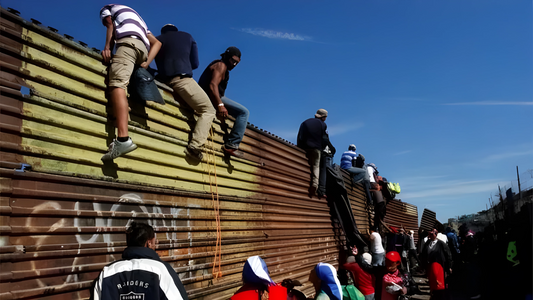It begins quietly.
Not with a bang, but a flicker.
First, the lights go out. Then the cell towers fall silent. Banks freeze, planes vanish from radar screens, and within hours, entire cities become islands of fear, separated by a digital ocean of nothingness. Governments scramble to respond — but their own communications are crippled. The power grids, the satellites, the financial systems... all offline.
The world has gone dark.
In that sudden vacuum of power, the global institutions rise.
As governments flail, the United Nations Security Council would meet in emergency sessions.
Hidden in the UN Charter — Chapter VII — is a key power: the authority to respond to “any threat to international peace and security.”
This chapter allows the UN to:
- Impose sanctions
- Authorize military action
- And, when necessary, assume administrative control over territories
It’s not speculation — it has already happened. In Kosovo (1999) and East Timor (1999), the UN established direct governments, taking over policing, courts, and even daily governance after local authorities collapsed.

In a true global catastrophe, invoking Chapter VII would allow the UN to move into failed states, set up emergency administrations, and govern entire regions — all legally, all internationally approved.
The world, desperate for stability, would call it a humanitarian necessity. But few would realize that sovereignty, once surrendered under crisis, is rarely fully reclaimed.
But the UN isn’t the only entity that would be able to seize power from this crisis:
As sickness spreads through the blacked-out world, the World Health Organization (WHO) could activate another piece of the framework: The International Health Regulations (IHR, 2005).
This treaty — already signed by nearly every country — allows the WHO to:
- Declare a Public Health Emergency of International Concern (PHEIC)
- Recommend mandatory travel restrictions, quarantines, and lockdowns
- Demand rapid compliance from nations under international law
During COVID-19, these powers were tested on a global scale. But under new proposals — like the Pandemic Accord currently being drafted — the WHO’s ability to bypass national governments during emergencies could be expanded even further.

In a world plunged into darkness and disease, the WHO could legally become the central command for public health:
- Setting movement restrictions
- Organizing mass vaccinations
- Managing access to resources like food and medicine
All framed not as political control — but as a "coordinated global response to save lives." And with every vaccination checkpoint and quarantine zone, the line between health governance and civil governance would blur. Health, once managed locally, becomes a globalized system — directed from Geneva.
But of course, this system wouldn’t be complete without financial overreach:
In the financial ruins of the blackout, where banks shutter and currencies collapse, another institution waits: the International Monetary Fund (IMF). Officially tasked with maintaining global financial stability, the IMF holds the power to:
- Issue emergency loans
- Provide liquidity through Special Drawing Rights (SDRs)
- Demand policy reforms in exchange for survival
These reforms — known as policy conditionality — have historically included:
- Cutting public services
- Restructuring entire economies
- Privatizing national industries
In a global collapse, dozens of nations would beg for IMF assistance. And in return, the IMF could reshape the global economy:
- Digital currencies, no longer tied to individual nations
- Centralized fiscal policies aimed at “resilience” over independence
- Standardized economic models dictated from Washington and Geneva
The mechanism is already built. The legal language is already written. All that’s missing is the desperate need to activate it.
While formal treaties shift into action, another quieter force moves behind the scenes:
The World Economic Forum (WEF). Founded as a convener of elites, the WEF has spent decades crafting visions of global governance through public-private partnerships. Its leaders — from Klaus Schwab (recently resigned) to Bill Gates — have openly called for a "Great Reset," urging the world to use crises as opportunities to reimagine capitalism, governance, and civil society.
During a global catastrophe, the WEF wouldn’t need tanks or soldiers. It would leverage:
- Corporate giants controlling communications and supply chains
- Financial networks running emergency digital currencies
- Private tech systems establishing digital identity verification for aid distribution

Through its vast network of stakeholders, the WEF could effectively manage key sectors of post-blackout recovery — without needing public elections or national debate. What was once discussed as theoretical — sustainable development goals, carbon rationing, digital ID systems — would become realities imposed through survival necessity. Governments would follow because the alternative would be chaos.
Lastly, amid riots, civil unrest, and desperate violence, NATO could rise to restore "order."
Though the North Atlantic Treaty Organization (NATO) is officially a defensive military alliance, its role has evolved:
- NATO now commits to "resilience" and "continuity of government" planning
- NATO coordinates cross-border disaster responses and infrastructure protection
- Cyberattacks can now trigger a collective military response under Article 5
Traditionally, Article 5 — NATO’s mutual defense clause — was only triggered by a conventional military attack. However, starting in 2014 and reinforced in 2016, NATO declared that a major cyberattack could also trigger Article 5.

NATO already coordinates non-military disaster response through bodies like the Euro-Atlantic Disaster Response Coordination Centre (EADRCC). NATO’s focus includes securing:
- Power grids
- Water supplies
- Food logistics
- Hospitals
- Transportation networks
In fact, NATO drills (like CMX exercises) routinely simulate scenarios where national authorities fail, and military forces have to manage civilian infrastructure to prevent total collapse.
NATO forces are already trained to move into critical sectors and take operational control if civilian agencies break down — keeping supplies flowing, guarding medical centers, and preventing resource riots.
Though initially called "emergency support," NATO’s role could grow into quasi-civilian governance, especially if local governments are shattered beyond immediate repair. The official treaties allow it. The planning documents anticipate it. All that would be needed is the political will.
This collection of Governmental Organizations very well could establish a New World Order Overnight.
In the aftermath of the blackout, the old world is barely recognizable. Borders still exist — on paper, but real power has shifted. It belongs now to the institutions that weathered the storm, and possibly even manufactured it.
The structures are already in place. The UN can govern. The WHO can control movement. The IMF can remake economies. The WEF can redesign systems. NATO can enforce order. None of it requires a single shot fired. Only a catastrophe — and the pre-written legal frameworks activated in the name of saving humanity.
In the darkness of collapse, the world would not fall into chaos — It would fall into the arms of a pre-prepared global governance system. And the question history would ask is not,
"How did we lose our freedom?"
but rather,
"When did we agree to give it away?"




